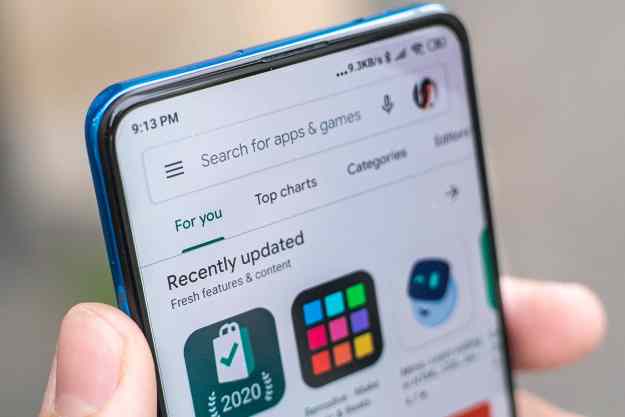
Before his death in 210 B.C.E., Zhao Zheng, known as the “First Emperor” of China and a ruthless badass of a leader, spent much of his time on this earth in search of the elusive elixir of life. Historians say the king was obsessed with living forever – and for good reason. King Zheng survived numerous assassination attempts, all while building great things: His armies unified China for the first time, he built the first national road system (a project that killed a hell of a lot of people), and he constructed large portions of China’s Great Wall.
King Zheng had, in other words, many reasons to live. Of course, he still never found the philosopher’s stone, and died at age 49. But rich men’s quest to live forever has never perished.
With the kind of cash, smarts, and ambition these guys have, it’s no wonder that they would strive for immortality.
Today, that mission has been taken up by another kind of king: Google co-founder and CEO Larry Page, and Arthur Levinson, chairman of the board at Apple, who will serve as chief executive of a new company called Calico. As Time recently reported, Calico has one goal: “Solve death.”
In addition to his throne at Apple, Levinson is also the chairman of Genetech, a pharmaceutical company. As CEO of Calico, Levinson will oversee the company’s life-extending endeavors, which apparently includes immortality as part of the firm’s business roadmap.
No one would fault you for thinking that Calico’s plan to disrupt death is ridiculous. Especially with Page telling Time things like this: “We think of solving cancer as this huge thing that’ll totally change the world. But when you really take a step back and look at it, yeah, there are many, many tragic cases of cancer, and it’s very, very sad, but in the aggregate, it’s not as big an advance as you might think.”
Okay, so Page doesn’t think curing cancer would be that big of a deal – a notion that I’m certain offended a great many people, researchers and victims alike. For me, however, the fact that the tech world’s elite want to cure death – and think that they can do it – comes as little surprise: Of course they want to live forever – they’re super successful rich people!

With the kind of cash, smarts, and ambition these guys have, it’s no wonder that they would strive for immortality. And these guys aren’t some casino barons doing blow off the asses of Playboy Bunnies – they’re changing the world, one product release at a time. They’re “doing great things.” Can you blame them for wanting to continue the winning streak?
For the record, I’m not saying Page and Levinson’s lives lack health issues, heartbreak, annoyances, or the occasional paper cut– always nasty, especially ones from filthy $100 bills. Page, in fact, suffers from a serious and life-changing condition known as vocal chord paralysis. Initially caused by a viral infection from 14 years ago, and more recently, a cold, Page’s affliction causes him to speak in a hoarse whisper – and, as the Little Mermaid taught us, there is no price you can put on one’s own voice.
What I am saying, however, is that crying yourself to sleep (or, for that matter, getting quality medical care) is, I would imagine, a bit less soul-crushing when you have $25 billion under the mattress. Plus, when you have more money than you can spend in lifetime, it’s only logical that you would want to extend that lifetime for eternity. You can’t buy a fleet of self-driving Bentleys in Heaven, after all. (Right?)
Of course, Calico’s audacious mission is not unique. Earlier this year, I lunched with Dmitry Itskov, another tech entrepreneur, whose Global Future 2045 Initiative seeks to solve death by implanting human consciousness into cyborg bodies and minds – an idea that is at once as nutty and completely reasonable as Calico’s mission of fixing the vessels we already have. In fact, the two projects are in some ways connected: Page helped found Singularity University in 2008, an endeavor that aims to tackle “humanity’s grand challenges,” along with business titan Peter Diamandis and Google’s director of engineering, Ray Kurzweil – both of whom spoke at the Global Future 2045 convention this summer.
Like Page and Levinson, all of the people listed above have (at least) one thing in common: Mountains of cash.
Most of us have come to terms with the fact that we are going to die – either from old age, a terminal illness, or some damn bus that pops out of nowhere.
For us common folk, the idea of immortality is appealing, sure – but it’s also nightmarish. Yes, we would love to spend more time with our friends and family. And, more generally, we’d love to see what the future holds. (Hoverboards have to become a reality at some point.) But just any life everlasting looks attractive only if it is a great life. Do we really want to live forever with the constant stress of cell phone bills, grocery shopping lists, f**k-up children, and corrupt politicians? This common guy sure doesn’t.
Besides, most of us have come to terms with the fact that we are going to die – either from old age, a terminal illness, or some damn bus that pops out of nowhere. It sucks – but it’s also okay. The finiteness of our time makes us appreciate the good hours we have. Death, some have said, is what gives life meaning. We might think differently if we had our own fleet of private jets and a mansion in Tuscany. But we don’t, and for the most part, we’re fine with that.
Calico’s quest, like all those before it, is an inevitable one. To live as long and as fruitfully as possible is the human way. I further conceded that the company’s vision and efforts may one day trickle down to the hoi polloi – if Page thinks curing cancer is no biggie, that’s great. Get out there, champ, and show us what you’ve got. If he, and Levinson, and whatever team of geniuses they are sure to hire can extend the average human life by a few years, I’m all for it, of course – everybody could use a bit more time. But when it comes to “solving death,” I suggest they learn from King Zheng: No matter what you accomplish in life, no matter how many great things you build, the Grim Reaper awaits us all.
So enjoy your billions while you’ve got it, fellas. The clock, she is ‘a tickin’.
Editors' Recommendations
- Have one of these Google Pixel phones? You’re getting Circle to Search
- Google is paying a $700 million fine, and you’re getting some of it
- Pixel Feature Drops used to be spectacular — now they’re horribly mediocre
- I want to love the Pixel 7 and Pixel 7 Pro, but Google won’t let me
- Google wants us to invest in an ecosystem we can’t trust

